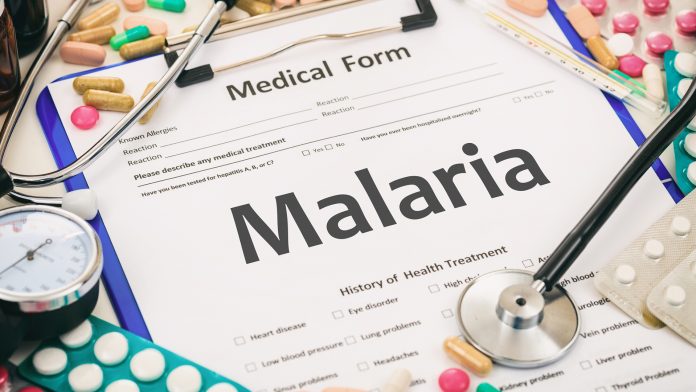
A team has discovered a protein that plays a key biological role in a malaria parasite; this finding could lead to novel treatment options.
The research showed that deactivating this protein found in a malaria parasite reduces in vitro growth of Plasmodium falciparum, the protozoa behind the most virulent form of the disease, by more than 75%.
The team, led by Professor Dave Richard of Université Laval, recently published details of the discovery of the key protein in malaria parasite in the scientific journal mBio.
“This breakthrough could lead to the development of a treatment that targets a function of the parasite that no malaria drug has yet exploited,” said Richard, professor in the Faculty of Medicine at Université Laval and researcher at CHU de Québec-Université Laval Research Centre.
Key malaria parasite development
Plasmodium falciparum is transmitted to humans through mosquito bites. After infecting the host’s liver, it circulates in the blood, hiding inside red blood cells and thereby avoiding attacks from the immune system. This malaria parasite has a main food source, haemoglobin, which is the protein that carries oxygen from the red blood cells to the rest of the body. The parasite digests the haemoglobin in structures called digestive vacuoles.
“The protein we discovered, PfPX1, is involved in transporting haemoglobin to these digestive vacuoles,” said Professor Richard. “When we deactivate PfPX1, we deprive the parasite of its main source of amino acids. This has an impact on its growth and survival.”
Richard sees a potential new way to fight the malaria parasite: “We could block the parasite’s PfPX1 protein from performing its functions. Since the protein isn’t present in humans, there would be a decreased risk of disrupting any important functions in the human body.”
Exploring new therapeutic options
Malaria plagues many parts of the world, including Sub-Saharan Africa. Statistics show that in 2020, 241 million people contracted a malaria parasite and 627,000 died from it. The disease mainly affects children under the age of five and pregnant women.
Although the World Health Organization (WHO) recognised the first malaria vaccine in 2021, Richard believes it is essential to continue to explore new therapeutic avenues to target the malaria parasite.
“As we have seen with COVID-19, new strains can continue to emerge and threaten the effectiveness of vaccines. What’s more, strains resistant to artemisinin, the main anti-parasite drug used against malaria, have already emerged in Southeast Asia. To maintain treatment efficacy and reduce the risk of new drug-resistant strains, it is important to combine therapeutic approaches, as we do with AIDS. Our discovery may well have a role to play in the fight against malaria,” he concluded.
























